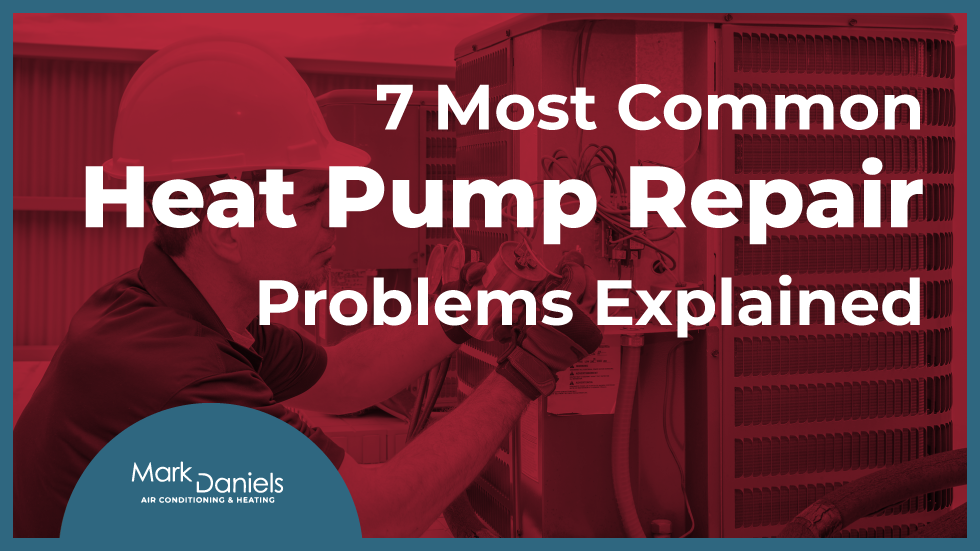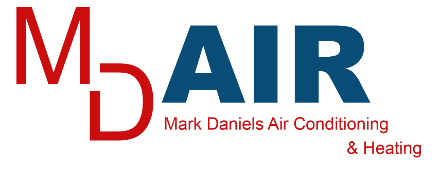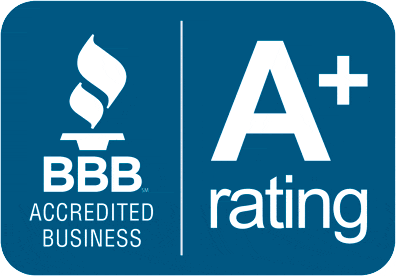Licensed | Bonded | Insured

7 Most Common Heat Pump Repair Problems Explained
Did you know that over 86 percent of households in Phoenix have HVAC units?
An HVAC unit keeps life at home more comfortable.
However, problems with your heat pump can make things go south fast.
People most often call on their local HVAC specialists to fix the problem.
While calling a professional is always the best option, it doesn’t hurt to know how to do it on your own.
Many of your heat pump repair concerns are issues you can handle.
By learning how to fix common heat pump problems, you can save money and time on calling for a repair service.
This article covers seven common heat pump repair issues that you can encounter.
Read on to discover more!
1. It Keeps Running
Are your energy bills getting a little too high for comfort?
A heat pump that runs continuously will play a huge part in your high energy costs, especially if it runs at full blast.
If this is a common issue for you, there are some possible reasons.
While a few of these concerns may need professional help, most are easy to fix.
One explanation could be that your heat pump has the wrong thermostat settings.
If it’s at a temperature that’s higher or lower than usual, your heat pump will keep running.
This is your heat pump’s way of maintaining the temperature you set.
You can resolve this by keeping your thermostat in the right settings.
Keep in mind that the ideal setting during summers is 78F.
This is enough to provide you with cool air while keeping your bills from going higher.
Other times, this problem may arise if your thermostat has an incorrect calibration.
To fix that, you can replace it yourself.
A broken heat pump compressor contactor can also result in high energy bills.
Remember that the compressor contactor controls the electricity flowing to your heat pump.
When it breaks, nothing will control the electricity, which will make your heat pump run 24/7.
2. It’s Not Running
Once your AC stops working, your first thought is to call your technician.
But before you do, you can do a couple of heat pump troubleshooting to find what’s wrong.
That way, you’ll know if it’s something you can fix.
Sometimes a power loss can be why your heat pump stopped running.
Your heat pump’s indoor and outdoor units always have separate switches.
Check if the power switch in both units to confirm if they’re both turned on.
Otherwise, you can check your home’s panel to see if you have a tripped circuit breaker or a blown fuse.
Dirty air filters can also cause your heat pump to keep running.
When your air filters are dirty and clogged, less air passes through.
Because of that, your heat pump can get overworked and stop working.
3. It’s Not Cooling
A heat pump not cooling in mid-summer can be a serious pain.
Before you panic, take a look at your AC to know what can be causing it.
If your heat pump is heating but not cooling, you may have a fault-reversing valve.
This is a major issue, so it’s best to contact your local HVAC services to have it replaced.
Another big reason is that your refrigerant levels get too low.
A low refrigerant means your heat pump won’t cool or heat right.
Have your technician check on any leaks and have them fixed.
4. The Outdoor Unit Froze
There’s a high chance of your outdoor unit freezing up during winter.
Keep in mind that your heat pump goes into defrost mode to remove this layer of ice.
But sometimes, a thick ice layer can stop the heat transfer between the outside coil and the air.
When this happens, your outdoor unit is blocked or has fan problems.
You can spray water from a hose to melt the ice if your unit’s blocked.
If you have a defective fan, it’s best to contact a trusted technician.
5. Weird Smells
A heat pump producing weird smells is a big indicator that’s something’s wrong.
The most common cause of weird smells is from growing mold.
Once molds start growing inside your heat pump, air quality lessens.
Make sure you turn it off and begin cleaning the mold off.
They can also be from dead animals that infiltrated through your pump.
Take the cover off, remove the carcass from the pump, and give it a thorough clean-up.
6. Your Unit’s Leaking Liquid
Molds in your heat pump often grow when your unit’s leaking.
A leaking unit often results from a refrigerant leak or a clogged drain line.
A refrigerant leak can cause ice build-up on your evaporator coils, resulting in heat pump inefficiency.
When it melts, water will start leaking and even cause electrical damage.
7. It’s Short Cycling
Short cycling in your heat pump means a repeated shut down of your heat pump after you turn it on.
If your heat pump is short cycling, check if the system is overheating or leaking.
It’s also possible that you have a wrong-sized unit.
The size of a unit plays a huge factor in its function, depending on the size of your house.
It can cool or heat your home too fast or shut down once it gets to the right temperature.
Dirty air filters prevent proper airflow that will make your system overheat.
When that happens, your heat pump shuts down in defense.
A Guide To The Seven Most Common Heat Pump Repair Problems
There’s no doubt of how heat pumps are basic commodities at this point.
Because of that, encountering heat pump repair issues is a big concern.
While some problems need a professional’s help to get solved, there’s a lot of heat pump issues that you can fix yourself.
Don’t see your concern on this list?
If you think your HVAC issues are way over your skill level, look no further.
Get help with your HVAC concerns by contacting us today.
Looking for a trusted Chandler heating repair company? Contact your 5-star, emergency HVAC experts at Mark Daniels Air Conditioning & Heating. We’ve been serving the Valley Since 1996. Call (480) 571-7219 or request service online today!
Read More about Air Conditioning & Heating Tips:



